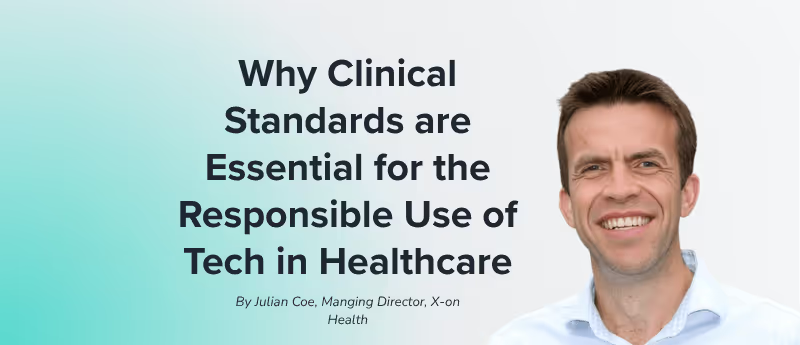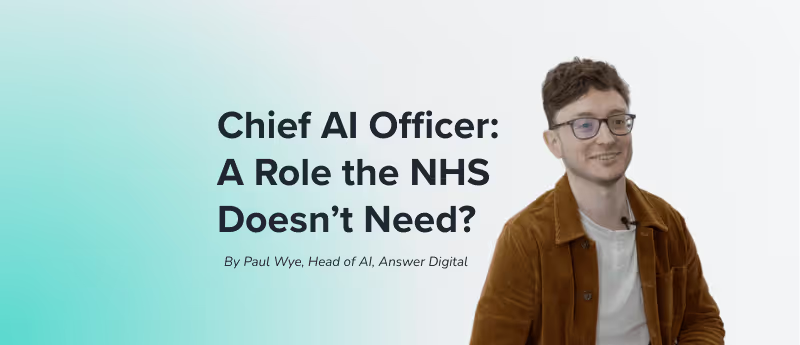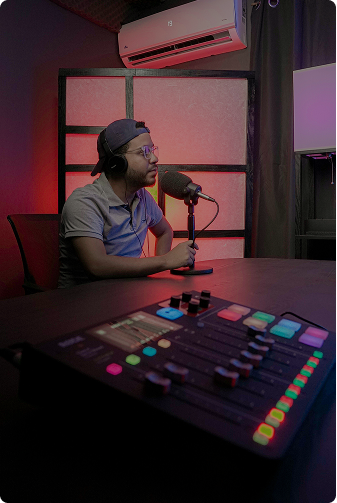TORTUS AI and X-on Health Partner to Deploy Ambient Scribe Across UK Primary Care
TORTUS AI and X-on Health Partner to Deploy Ambient Scribe Across UK Primary Care
.png)
AI voice-scribe firm TORTUS has teamed up with telephony giant X-on Health to roll out its ambient clinical documentation platform Surgery Intellect to more than 3,500 GP practices across the United Kingdom. The deal sits at centre of a fast-moving race to automate consultation note-taking in primary care. While early pilots suggest meaningful time-savings for overstretched clinicians, big questions remain surrounding real-world evidence.
Partnership in Context
TORTUS confirmed the strategic partnership on 13 May 2025, framing it as a route to nationwide availability of its AI assistant regardless of a surgery’s telephone supplier. X-on Health, whose cloud platform Surgery Connect handles more than 40 million calls a month, will embed the software natively so that it can transcribe incoming calls, front-desk conversations and face-to-face consultations.
Health Secretary Wes Streeting had already hailed TORTUS’s ambient voice technology (AVT) as a “game-changer” for the NHS in a recent government briefing, lending the partnership high-level political momentum.
How the Technology Works
Surgery Intellect runs in the background, capturing clinician–patient dialogue, filtering out extraneous noise and generating structured notes, referral letters and SNOMED codes in real time.
Unlike conventional speech-to-text systems, AVT solutions feed speech transcripts into large-language-model pipelines that draft documents automatically for clinician review. NHS England describes such tools as “AI-enabled ambient scribes” and has issued new procurement guidance to help providers assess clinical safety, data protection and human-factors risks.

Claimed Benefits—and early evidence
TORTUS' internal research suggests independent users are saving around four minutes per consultation, equivalent to reclaiming an hour across a standard GP session. However, this has not yet been independently verified.
Preliminary results from a 5,000-patient, pan-London trial led by Great Ormond Street Hospital also point to improved face-to-face time and faster letter turnaround.
Those efficiency gains matter: the NHS Long-Term Workforce Plan estimates that up to 44 % of administrative activity in general practice could be automated through AI, easing chronic staff shortages.

Regulatory and Safety Hurdles
TORTUS currently holds a UK MHRA Class I medical-device registration and is pursuing a Class IIa upgrade. Class IIa status would subject the product to more rigorous post-market surveillance and clinical-evaluation requirements.
Guidance from the British Medical Association and the Royal College of General Practitioners stresses that AI scribes must complement, not replace, clinician judgement and doctors remain liable for any erroneous record that harms a patient.
Real-world deployments of other ambient script products have uncovered hallucinations, mis-heard drug names and fictional examination findings—underscoring the need for human oversight.
Economics and Competitive Landscape
TORTUS faces rivals on several fronts: Microsoft-owned Nuance DAX Copilot is expanding in secondary care; US-based Suki is courting UK pilots; London start-ups such as Tandem (partnered with Accurx) are vying for the same market.
What this means for UK primary care
- Productivity boost—if proven: Cutting four minutes from each of England’s 300 million annual GP appointments could, in theory, release millions of clinical hours. But scaling pilot-stage results to every practice will depend on connectivity, training and funding streams.
- Data-sharing debates: The partnership pushes conversational health data into cloud pipelines, raising questions about storage location, secondary use and patient opt-out mechanisms at a time of heightened public scrutiny of NHS data deals.
- Workforce morale: Early adopter testimony describes the tool as a “godsend” that restores eye contact in the consulting room, yet detractors caution that constant audio capture may feel intrusive to both patients and staff.
- Liability and trust: With NHS England warning that ultimate responsibility stays with clinicians, medico-legal frameworks will need updating to reflect shared human–AI authorship of records.
Outlook
The TORTUS–X-on partnership will undoubtably accelerate mainstream adoption of AVT in general practice, aligning with government ambitions to free up doctors’ time. Yet the initiative will be judged on rigorous, peer-reviewed outcomes from GOSH’s forthcoming study and on demonstrable compliance with evolving NHS AI guidance. For now, Surgery Intellect joins a crowded field where innovation, regulation and scepticism are all moving at pace.
.png)
.png)
.png)



